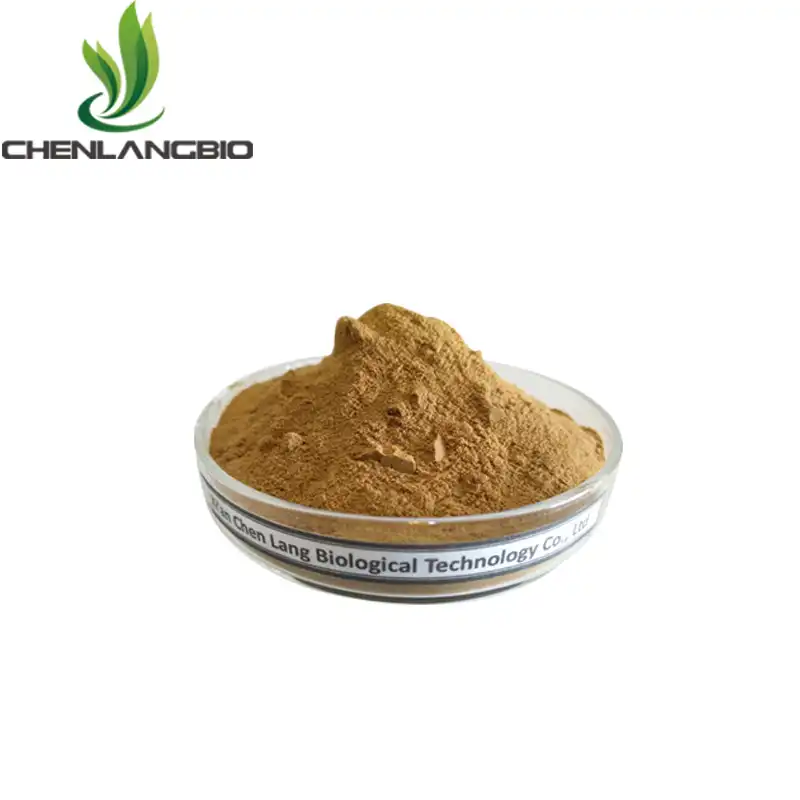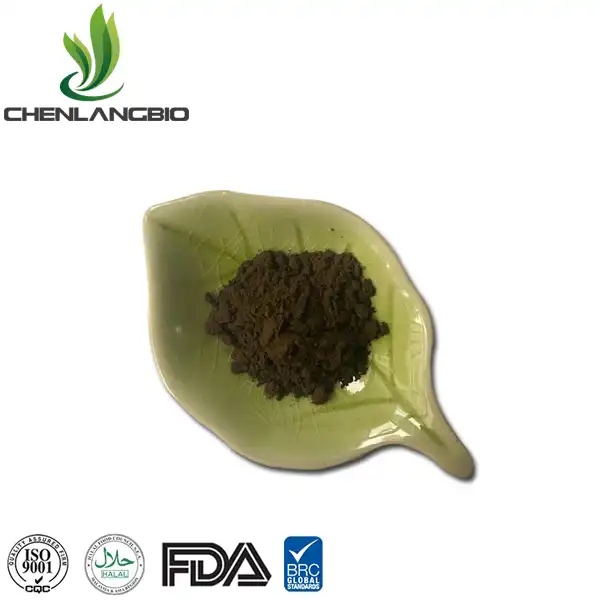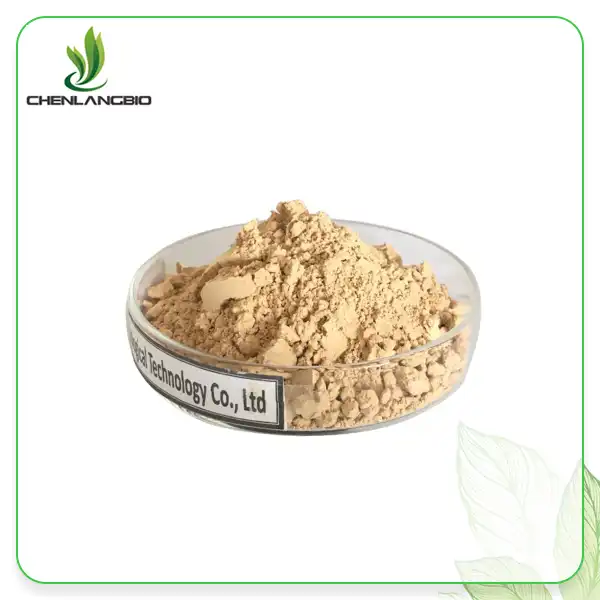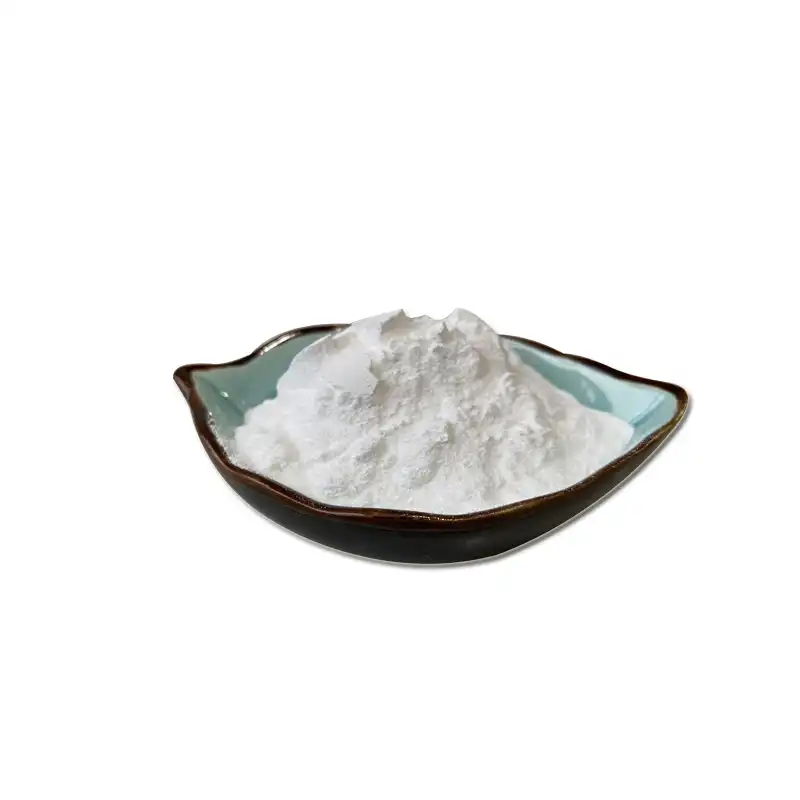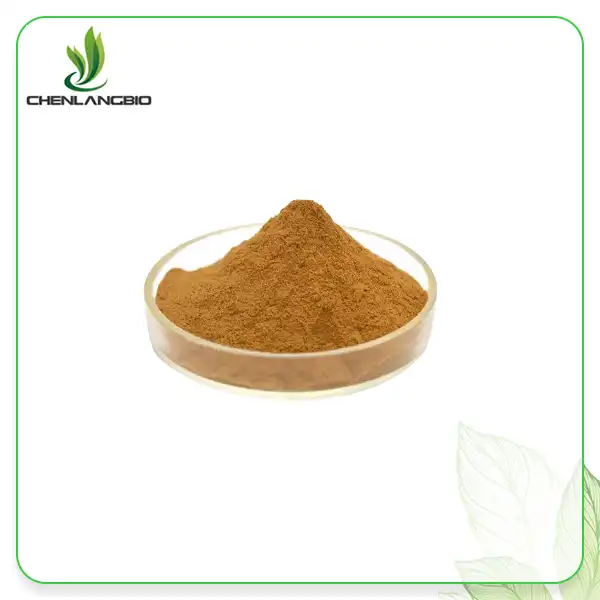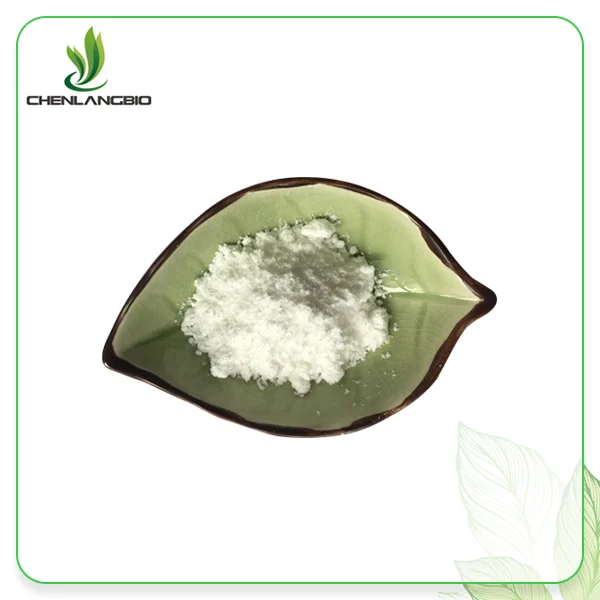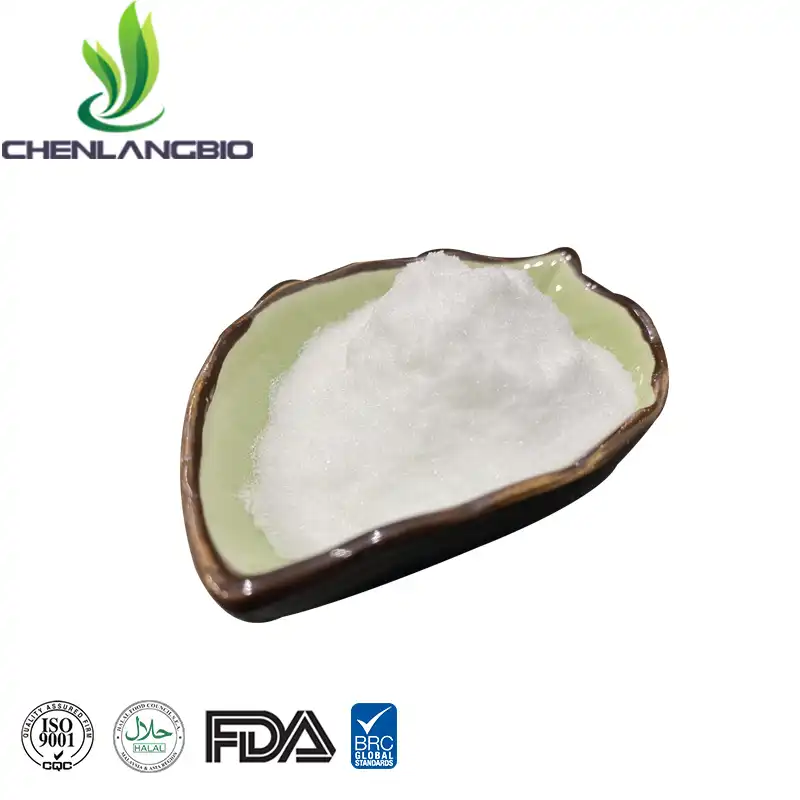Is Honokiol Safe to Use
2024-06-21 15:47:48
Honokiol, a bioactive compound extracted from the bark of Magnolia officinalis, has been revered in traditional Chinese medicine for its myriad therapeutic benefits. Known for its anti-inflammatory, antioxidant, and neuroprotective properties, honokiol is increasingly popular as a supplement. However, its safety, particularly for long-term use, is an important consideration. This article explores the safety of honokiol powder, addressing potential side effects, interactions with other substances, and appropriate dosages.

What Are the Potential Side Effects of Honokiol?
Honokiol is generally considered safe, but understanding its side effects is crucial for informed use. The potential side effects can vary based on dosage, duration of use, and individual health conditions.
How Does Honokiol Affect the Body?
Honokiol interacts with multiple physiological systems primarily due to its anti-inflammatory and antioxidant properties. It modulates the activity of several cellular pathways, including the nuclear factor kappa-light-chain-enhancer of activated B cells (NF-κB) pathway, which plays a significant role in immune response and inflammation regulation. By inhibiting NF-κB, honokiol reduces the expression of pro-inflammatory cytokines and provides a protective effect against oxidative stress.
Research indicates that honokiol is well-tolerated by both humans and animals. However, some users might experience mild side effects, especially at higher doses or with long-term use. Common side effects include:
- Gastrointestinal Discomfort: Some users report nausea, diarrhea, or abdominal pain, which typically subside as the body adjusts to the supplement.
- Headaches and Dizziness: These are occasional side effects that usually diminish over time.
- Allergic Reactions: In rare cases, individuals may experience allergic reactions such as skin rashes, itching, or swelling. Those with known allergies to magnolia or related plants should be particularly cautious.
These effects are generally mild and reversible. Starting with a lower dose and gradually increasing it can help mitigate these side effects.
Are There Long-Term Risks Associated with Honokiol?
While honokiol's short-term safety profile is well-documented, long-term safety data is limited. Most studies focus on short-term use, leaving some questions about the effects of prolonged consumption unanswered. Long-term risks may include:
- Drug Interactions: Honokiol can inhibit cytochrome P450 enzymes, which are crucial for drug metabolism. This inhibition can alter the effectiveness of medications metabolized by these enzymes, leading to potential drug interactions and adverse effects.
- Chronic Use Concerns: Animal studies suggest that prolonged administration of honokiol does not result in significant toxicological effects, but translating these findings to human health requires more research.
To minimize risks, individuals with chronic conditions or those taking multiple medications should consult healthcare professionals before using honokiol long-term. Adhering to recommended dosages and monitoring for adverse effects is crucial.
Can Honokiol Be Taken with Other Supplements or Medications?
Honokiol’s interaction with other supplements and medications is an essential factor in its safe use. Understanding these interactions can prevent adverse effects and enhance therapeutic outcomes.
What Are the Known Interactions with Common Medications?
Honokiol’s potential to inhibit cytochrome P450 enzymes, particularly CYP3A4, can affect the metabolism of various medications. This interaction can lead to altered drug levels in the body, potentially causing either reduced efficacy or increased toxicity.
Key interactions include:
- Anticoagulants: Honokiol has anticoagulant properties, which can enhance the effects of medications like warfarin, increasing the risk of bleeding. Caution is advised for individuals on anticoagulant therapy.
- Statins: Honokiol may interact with statins metabolized by CYP3A4, potentially leading to elevated blood levels and an increased risk of side effects such as muscle pain or liver damage.
- Calcium Channel Blockers and Immunosuppressants: Similar interactions may occur with other drugs metabolized by CYP3A4, requiring careful monitoring and possible dosage adjustments.
Individuals taking prescription medications should consult healthcare providers to evaluate the risk of interactions and adjust their treatment plans accordingly.
How Does Honokiol Interact with Herbal Supplements?
Honokiol can also interact with other herbal supplements, influencing their effects and safety profiles. Potential interactions include:
Anticoagulant and Antiplatelet Supplements: Combining honokiol with supplements like ginkgo biloba, garlic, or fish oil, which also have anticoagulant properties, can increase the risk of bleeding.
Sedative or Anxiolytic Supplements: Honokiol’s calming effects may be enhanced when taken with supplements like valerian root or kava, leading to excessive sedation or drowsiness.
To minimize risks, users should introduce one supplement at a time and monitor for adverse effects. Consulting with a healthcare provider knowledgeable in herbal medicine can provide guidance on safe supplement combinations.
What Are the Recommended Dosages for Honokiol?
Determining the appropriate dosage of honokiol depends on individual factors such as health status, intended use, and tolerance. Following recommended dosages can enhance efficacy and safety.
How Should Honokiol Be Dosed for Different Conditions?
There is no standardized dosage for honokiol, but general guidelines can be based on research and clinical experience:
General Health and Wellness: A typical starting dose is 200-300 mg per day. This can be adjusted based on individual response and tolerance.
Anxiety or Stress: Higher doses ranging from 500-1000 mg per day may be used for anxiety, but starting with a lower dose and gradually increasing it is recommended.
Chronic Conditions: For managing conditions like arthritis or neurodegenerative diseases, consistent daily dosing is essential. The anti-inflammatory and neuroprotective benefits of honokiol may take several weeks to become apparent.
Users should consult healthcare providers for personalized dosage recommendations and adjust based on individual needs and responses.
Are There Different Forms of Honokiol Available?
Honokiol is available in various forms, including:
Capsules and Powders: These forms provide precise dosing and are convenient for daily use.
Tinctures: Tinctures offer flexible dosing adjustments and can be mixed with liquids for easier consumption.
Choosing a reputable manufacturer ensures product quality and potency. Third-party testing and certification can provide additional assurance of purity and effectiveness.
Conclusion
Honokiol, derived from Magnolia officinalis, offers substantial health benefits but requires careful consideration of its safety profile. While generally well-tolerated, honokiol may cause mild side effects and interact with medications. Users should start with low doses, gradually increase them, and seek medical advice if they experience any adverse effects. Ongoing research and monitoring are essential to fully understand honokiol’s long-term safety and efficacy. If you want to get moren information about this product, you can contact us at admin@chenlangbio.com
References
Pure Honokiol: A Powerful Tool for Health – ecoNugenics
Magnolia Bark Extract Uses, Benefits & Dosage - Drugs.com
Magnolia Bark Extract benefits, dosage, and side effects - Examine
8 Health Benefits of Magnolia Bark + Dosage, Side Effects - SelfDecode
Magnolia Bark: Benefits, Usage, and Side Effects - Healthline
Honokiol - Wikipedia
Honokiol: A review of its pharmacological potential and therapeutic applications – ScienceDirect
Neuropharmacological potential of honokiol and its derivatives – BMC Complementary Medicine and Therapies
This Hidden Oatmeal Benefit Could Transform Your Heart Health – The Healthy
Avenanthramide supplementation reduces eccentric exercise-induced inflammation – Nutrition Journal
Send Inquiry
Related Industry Knowledge
- Sesamin Powder vs. Other Antioxidants: Which is Best?
- Is Cactus Extract Good for Hair?
- The Science Behind Pure Fisetin
- Where to Buy Quality Durian Fruit Powder
- Is Glabridin Powder Safe for Skin
- How Does Nitenpyram Work
- What Is Praziquantel Used for in Fish
- What Are the Side Effects of Cactus Extract
- China Troxerutin Powder Supplier
- Pure Hydrolyzed Keratin Powder for Sale and Hydrolyzed Keratin Benefits



